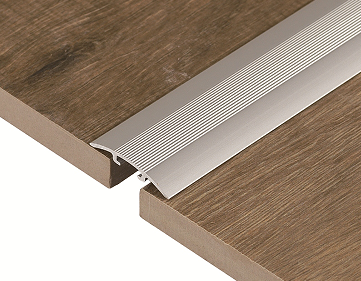1
What are“Absorbed particles” and their
influence on aluminum profiles’ quality
“Absorbed particles” have
little influence on anodizing aluminum profiles, but they have strong impact to
other surface treatment forms. During aluminum profile extruding production,
the absorbed particles on the extruded profiles can be observed if carefully
enough or can be felt with your hand moving on the profiles’ surface. After
aging, these particles stick more firmly to the aluminum profiles’ surface. During
the pre-handling process for aluminum profiles surface treatment, due to the
density of bath solution, some of them can be removed, leaving tiny pit on the
aluminum profile’s surface. Those that can not be removed will swell up. It
usually happens in electrophoresis process and powder coating process, which do
harm to the beauty of the aluminum profiles surface and also influence the
products’ quality.
2
Analysis on cause of absorbed particles on
surface of extruded profiles
2.1 Influences on the mould
During the aluminum profiles’ extrusion, the mould works in high temperature and high
pressure circumstances. Influenced by pressure and temperature, it will have elastic
deformation. Mould working belt is originally parallel to the extrusion, but
after pressurized, it is deformed into trumpet shape, only the cutting edge
section contacts the extruded profile and adhesion aluminum is formed. During
this process, the particles are brought out by extruded profiles continuously
and stick to the surface of the aluminum profiles. Thus become “absorbed particles”.
With the adhesion aluminum keep
accumulating, the mould has instant rebound and the bite mark defect comes into
being. If adhesion aluminum accumulates too much and can not be pulled out by
extruded profiles, the adhesion aluminum on the mould can not fall off when it
has instant rebound. It will make the surface of the aluminum profile rough,
have bright lines, profile crack or mould-stuck, etc.
Cast rod surface as well as inner impurity accumulates in the
metal flow dead zone of the mould. With the pushing of the extruded cast rod
and increasing of extrusion times, the impurity in the dead zone is changing
too. Some of it is brought out by normally running metal, and accumulates in
the work belt deformation space. Others are pulled off by aluminum profiles and
become absorbed particles.
2.2 Influences on extrusion
techniques
Aluminum profile extrusion
technique parameters also play an important role in absorbed particles. After
on-site observation, the higher the extrusion temperature and the faster it
extrudes, the more the absorbed particles will be. Because high temperature and
fast speed make the profile flows faster and the mould deforms more seriously,
thus the adhesion aluminum phenomenon becomes more common.
2.3 Influences on the cast rod
quality
After repeatedly analysis and
comparison, we find that the cast rod quality is one of the main reasons for
absorbed particles.
3
Measures to be taken to eliminate the absorbed
particles on aluminum profile’s surface
3.1 Mould design and use
(1)The mould’s design must
meet the demand of rigidity and strength, so that the mould’s elastic
deformation can be decreased when pressurized. When deciding work belt, its
length, empty knife form, mould neck as well as welding chamber forms all need
to choose the best parameters. When choosing parameters for the mould’s
deflector hole and porthole, it’s better to choose the largest figures within
the allowable range so as to reduce the pressure. But the porthole can not be
too big, otherwise impurities will be brought in when extruding.
(2)Strengthen the testing of mould. The requirements for the mould’s hardness must follow the company’s standards.
(3)When using the mould, appropriate mould pad or support cushion
must be installed and used.
(4)The mould must get nitrogen treatment before getting onto the
machine, so as to reduce the adhesion aluminum.
(5)When fixing and polishing the mould, pay attention to the parallel
of work belt, smoothness of surface and the coordinating sizes of combination
mould in assembling.
3.2 Adjust the aluminum profile extrusion
technique parameters
3.2.1 According to extrusion
parameters, profile section, mould situation and equipment conditions, choose
the best extrusion temperature, cast rod heated temperature, mould temperature
and extrusion speed, and keep adjusting these parameters during production so
as to eliminate or reduce absorbed particles.
3.2.2 Adjust the aluminum rod heated
means. First increase the temperature to 520-560℃, then reduce to 450-480℃, keep the temperature stable, and this
will remain the status of semi-uniformization, eliminate the casting stress,
increase the aluminum rod’s plasticity, decrease the deformation
resistance, improve the products’ structure and performance, and reduce
the amount of absorbed particles.
3.3 Improve the cast rod’s quality
Use al-si master alloy that is
produced in big furnace, prolong the temperature holding time for producing al-si
master alloy, fully dissolve the silicon, and decrease the silicon content from
former 15-20% to 10-12%. After this, the aluminum rod quality is improved. On the
other hand, promote the analysis on cast rod, carry out the quality control and
prevent the use of defected cast rod.
4
Conclusion
Influence factors for absorbed particles mainly include the
mould, cast rod and aluminum profile extrusion techniques. We shall analyze the
problems, sum up experience, reduce or avoid defects like absorbed particles,
adhesion aluminum, rough surface, scratch, and profile tear, and improve the product
quality and aluminum profile yield as well as production efficiency.
——Abstract from wechat
Aluminum Profile Processing
